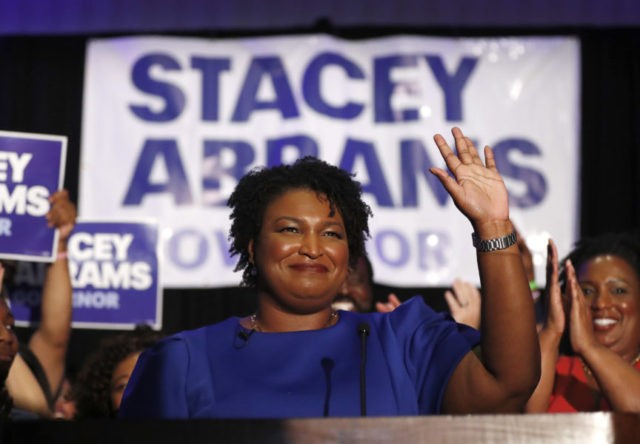Over the past five months, President Trump’s ratings, according to the realclearpolitics.com moving average, have flipped from 38-58 to 44-52 — a growth of six points in approval and a drop of six points in disapproval.
It would be easy — and wrong — to dismiss this change as the mere fluctuation of polling or margin of error. No way. Considering the enormous polarization of opinion Trump has engendered — and the intensity with which those who disapprove hate him — it is remarkable that six percent have come over from a negative to a positive view of the man. They had a very long distance to travel.
But six percent have jumped the wide synapse and now like Donald Trump — a conclusion they would have found unthinkable five months ago. And the polls that break down approval and disapproval to indicate the depth of the sentiment — (i.e. strong approve, somewhat approve, somewhat disapprove, and strong disapprove) — report that most of the six percent have gone from strong disapproval to strong approval, bypassing the “somewhat” ratings in between. A great many have gone from hate all the way to love.
This change is not a blip. It represents a change in world view, a conversion of sorts.
It is akin to the kind of sea change that followed Ronald Reagan’s and Margaret Thatcher’s early years when their policies so obviously worked better than those of their liberal predecessors.
This kind of change has a way of lasting. Of sticking. Particularly as the economy improves and the prospects for peace with Korea materialize (we hope), it is likely that this pro-Trump trend will continue.
Pollster par excellence John McLaughlin says:
Since last November President Trump has gained a net of 9 points in his job approval. President Trump is a grinder. In spite of the partisan opposition and media bias President Trump stays focused on succeeding. He just grinds upward and the voters recognize it. The economy is growing. America is stronger and President Trump’s substantive results are reflected in the polls. Expect President Trump to keep grinding upwards.
And this trend also means that the opposition — the Democratic Party is “grinding” downward. In the immediate future, as moderates leave its ranks and join with Trump’s forces, the Democratic primaries that decide who will be their candidates will shrink in size and become increasingly the captive of ethnic minorities and extreme ideologies. Those who could leave the Democratic Party are leaving it and those who remain are the true believers and core ethnic voters.
So it is natural, as the primaries so far this year are suggesting, that moderates can find no place in the Democratic Party and the candidates they support are doomed to defeat at the hands of the extremes.
This polarity is the same sort of change in public attitudes that occasioned the marginalization of the Democratic Party after Carter’s defeat or that of the Labour Party in Britain after Thatcher’s election. The Democrats lost the two following elections in landslides (Mondale and Dukakis were the candidates) as did their Labour counterparts in the UK who lost three contests (their candidates were Foot and Kinnock, who lost twice) before sanity — in the form of Clinton and Blair — returned.
This week’s Democratic primary results reinforce that notion:
- In Texas, Democrats nominated Lupe Valdez as their candidate for governor. She is openly lesbian. She defeated a Democratic centrist, Andrew White, the son of former Governor (and my former client) Mark White who promised to “continue” his Dad’s moderate legacy. CNN, commented that “the party’s base… has shown little interest in centrists.”
- Idaho Democrats nominated 38 year-old Paulette Jordan, a native American who beat the white 72 year-old choice of the Democratic establishment.
- African-American Stacey Abrams won the Democratic primary for Governor on Tuesday, defeating a moderate who argued that the way to win was to move to the middle. Adrianne Shropshire, executive director of BlackPAC emphasized that Abrams won “this election because she reached out and engaged communities of color, particularly black voters, on the issues that they care about.”
- In Arizona, openly bi-sexual Congresswoman Kyrsten Sinema is the Democratic candidate for the open Senate seat.
These primary results amply illustrate the propensity of today’s Democrats to nominate unelectable candidates. Before sanity comes back to the Democrats, they will have to wade through a decade of lost elections.

COMMENTS
Please let us know if you're having issues with commenting.